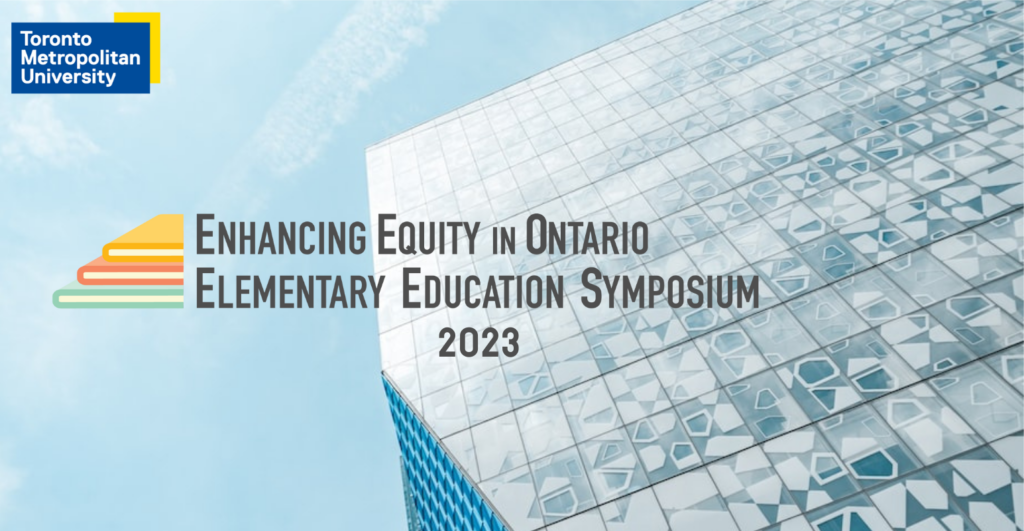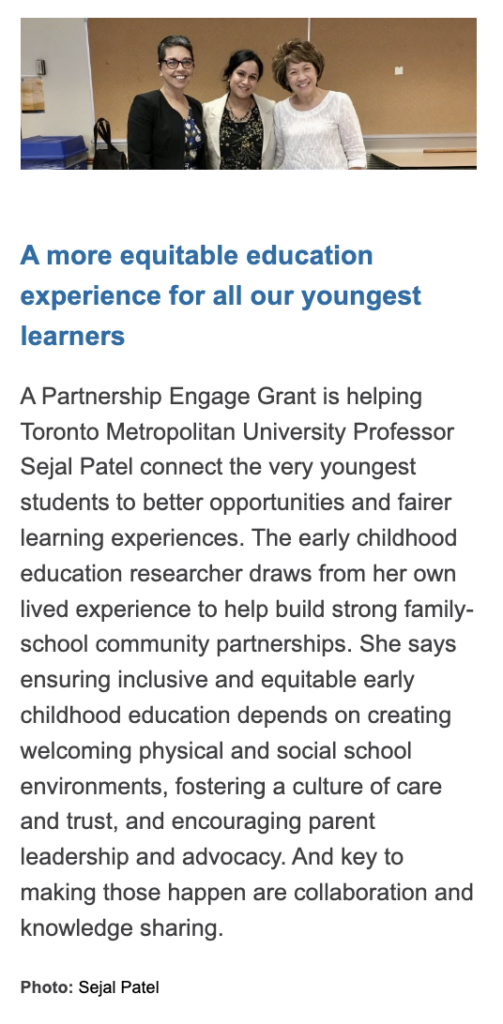The Enhancing Equity in Ontario Elementary Education Symposium was held virtually and in-person at Toronto Metropolitan University, on October 11th and 12th, 2023. Enhancing Equity in Ontario Education is a project led by Dr. Sejal Patel (Early Childhood Studies, Toronto Metropolitan University), in partnership with Dr. Alana Butler from Queen’s University, Dr. Adam Davies from University of Guelph, Dr. George Dei from University of Toronto, Dr. Nicholas Ng-A-Fook from University of Ottawa, Dr. Vidya Shah from York University, Dr. Janelle Brady and Dr. Kathryn Underwood from Toronto Metropolian University, Tesa Fiddler from Thunder Bay Catholic District School Board, Max Cooke from EdCan Network, Stephen Hurley from voicEd Radio, Courtnay McFarlane from Regent Park Community Health Centre, and Annie Kidder and Dr. Robin Liu Hopson from People for Education.
The Symposium invited participation by all Ontario district school boards, education stakeholders, and scholars focused on educational equity and human rights (considering Black and Indigenous students, newcomer/international students, racialized students, students living in low socioeconomic neighbourhoods, student who identify as 2SLGBTQIA+, disabled students, and other intersectionalities), to allow for sharing of promising practices around equity-based initiatives, along with providing space to reflect on and commit to taking greater action in support of enhanced equity for elementary school students.
Video Recap:
As we begin 2024, we reflect on the inspiring conversations that took place at the Enhancing Equity in Ontario Elementary Education symposium. The symposium provided opportunities to share and consider promising practices regarding enhancing equity for elementary students. We received wonderful feedback about the logistics, moderated discussions, panels, and presentations, and are grateful for all of the dialogue and action that the symposium attendees continue to inspire.
Our heartfelt appreciation goes out to all of the presenters, symposium staff and volunteers. Your collaboration, support, and effort helped to ensure that the symposium ran as smoothly as possible.
Thank you all for your participation in this important event. Stay tuned for podcasts and symposium proceedings, which will be mobilized through this website.












